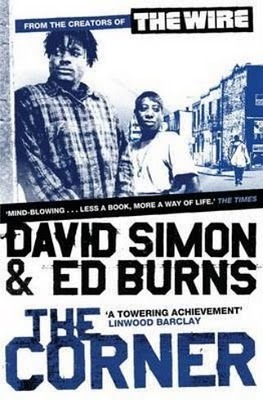More on this book
Community
Kindle Notes & Highlights
by
David Simon
Read between
January 11 - February 20, 2020
Though it began as a criminal subterfuge and grew to become a neighborhood bazaar, the urban drug corner is now the social framework through which almost every soul in these battered communities must pass. Some, perhaps, will destroy themselves immediately, others will lose themselves in the mix, and a few stoics, astonishingly, will pass through the corner unscathed and uncorrupted. But pass through they must, because in places like Fayette Street, the corner is the neighborhood.
Ten or twenty or thirty years of addiction—it doesn’t matter. Every fiend in the street is trying to re-create that first perfect shot of dope or coke, the one that told him this was what he wanted in life.
Southern whites—those with any sense of the future anyway—began to see the migration as beneficial, a pressure valve on their demographic time bomb. Though increasingly superfluous in the wake of mechanized agriculture, the black population had become a majority in many rural counties, a growing threat to the world of Jim Crow that might one day require a reckoning. Now, through migration, much of that reckoning would come in the North.
“Mervo, where they teach you how to earn a living, but not how to live,”


